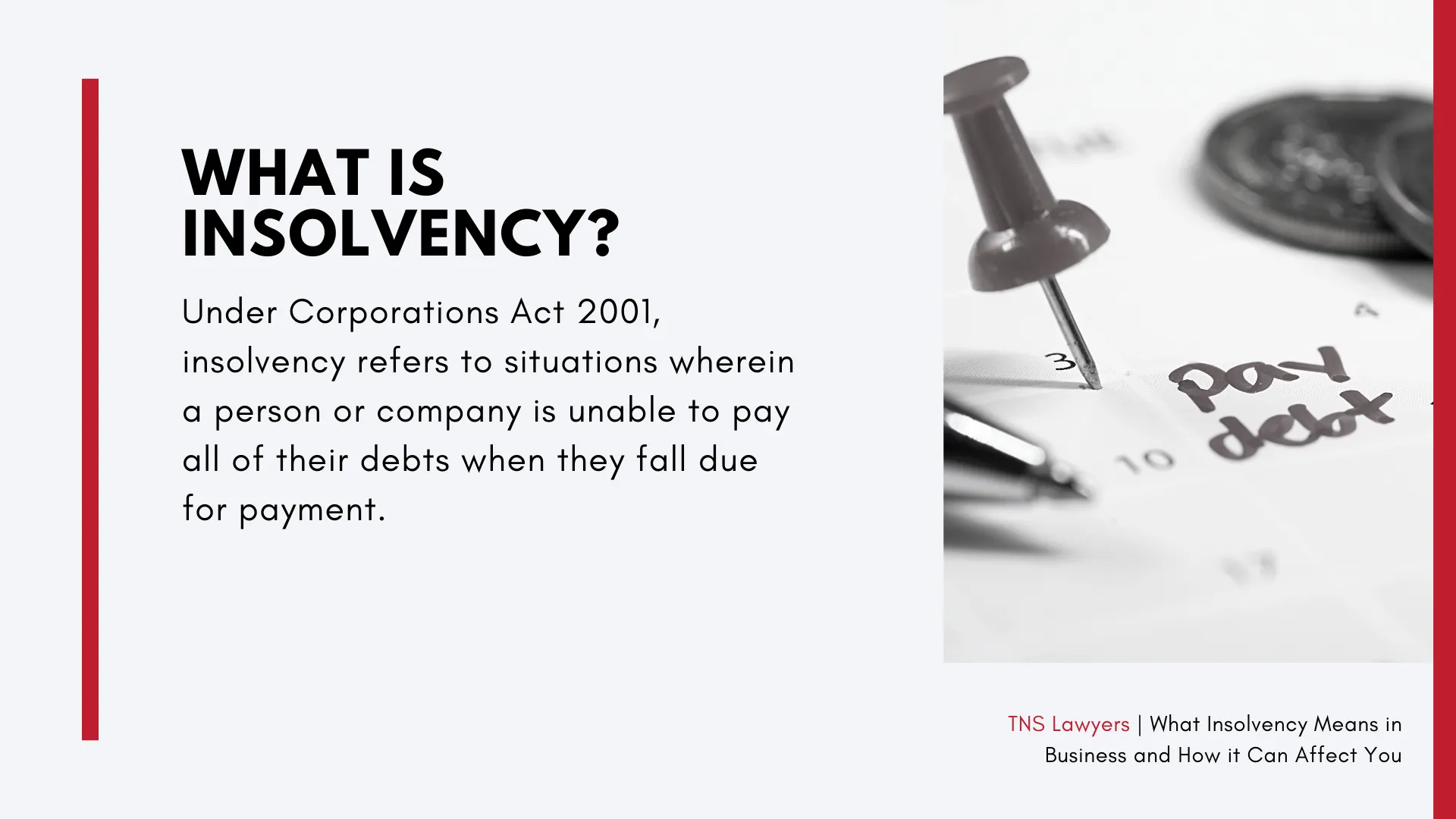About Insolvency Practitioner
About Insolvency Practitioner
Blog Article
The Main Principles Of Insolvency Practitioner
Table of Contents8 Simple Techniques For Insolvency PractitionerWhat Does Insolvency Practitioner Do?3 Easy Facts About Insolvency Practitioner ShownInsolvency Practitioner Can Be Fun For AnyoneThe Best Strategy To Use For Insolvency Practitioner4 Simple Techniques For Insolvency Practitioner6 Simple Techniques For Insolvency Practitioner
Insolvency is when obligations are higher than the worth of the firm, or when a borrower can not pay the financial obligations they owe. A business can end up being financially troubled as a result of a number of scenarios that lead to poor capital. When encountered with insolvency, a service or individual can call financial institutions straight and restructure financial obligations to pay them off.
Company proprietors may contact creditors straight and restructure financial obligations into more convenient installations. Financial institutions are generally amenable to this method due to the fact that they want to be repaid and prevent losses, also if the payment is on a postponed routine.
The owner produces a proposal outlining just how the financial obligation may be restructured making use of expense decreases or various other strategies for assistance. The proposition shows creditors how business might generate enough capital for lucrative operations while paying its financial obligations. Typically, a forgiven financial obligation may be considered revenue by the Internal Earnings Service (INTERNAL REVENUE SERVICE).
Insolvency Practitioner Can Be Fun For Anyone
When a service needs to pay raised rates for items and solutions, the company passes along the expense to the customer. As opposed to pay the raised cost, numerous consumers take their business in other places so they can pay less for an item or solution. Losing clients leads to losing income for paying the firm's financial institutions.
Business might wind up paying large amounts of money in damages and be overcome operations. When operations cease, so does the business's earnings. Absence of earnings leads to accounts payable and financial institutions asking for money owed to them. Some business come to be insolvent due to the fact that their goods or services do not advance to fit consumers' changing needs.
Insolvency Practitioner - The Facts
Costs exceed profits and expenses stay unpaid. Cash-flow insolvency takes place when a company has the possessions to cover their debts yet they are in the wrong type, such as genuine estate rather of liquid funds. Balance-sheet bankruptcy, on the other hand, indicates an absence of assets in any type to cover financial debts.
The internal revenue service states that an individual is bankrupt when the overall obligations exceed total possessions. Insolvency Practitioner. A insolvency, on the various other hand, is a real court order that portrays how a bankrupt individual or company will pay off their lenders, or exactly how they will offer their properties in order to make the settlements
Things about Insolvency Practitioner
When a business or person is insolvent, they can not satisfy their financial commitments. Bankruptcy is not the exact same as personal bankruptcy, although a company that has actually ended up being insolvent might submit for bankruptcy. Bankruptcy is the state of not being able to pay your obligations while personal bankruptcy is a lawful process to release your debts.
Comprehending the elements visit homepage that can result in bankruptcy, such as overspending, can aid you prevent bankruptcy and its repercussions.
The Basic Principles Of Insolvency Practitioner
It is popular that supervisors and officers of firms (and supervisors of minimal liability companies) owe fiduciary tasks to their organizations and their shareholders (or members). These fiduciary commitments are specified by state laws and, though there are variants from one state to another, they generally consist of an obligation of commitment and an obligation of care.
The responsibility of care calls for directors and officers to exercise diligence, to make educated choices, and to act in great belief so that their activities remain in the very best interest of the business. Past the range of this discussion, some states allow these obligations to be limited either by so keeping in mind in the organizational records or complying with various other requirements.
Get This Report about Insolvency Practitioner

Beware about offering shareholders special treatment at the expenditure of lenders (e.g., licensing and funding a dividend or a supply redemption). Be mindful about special therapy in between courses of investors. Clear up initiatives to discover all the facts before taking a specific strategy; directors need to genuinely believe that any kind of choices made are in the very best rate of interests of the corporation in its entirety (i.e., decisions will certainly be examined in knowledge because of the result of such actions on the company).
In any insolvency or bankruptcy proceeding, repayments made to particular creditors at the expenditure of various other financial institutions can be clawed back, especially if there is some link between the business and the creditor. Consider proposing at an annual investor meeting (or any other meeting of stockholders) a resolution affirming that all previous business choices and actions taken by the supervisors and police officers of the corporation were taken in good confidence after an exercise of reasonable care.
A Biased View of Insolvency Practitioner
Completely reveal any personal or business partnerships with celebrations on the various other side of deals involving the company to prevent the appearance of a dispute of rate of interest. In reviewing prospective fund elevating purchases or a sale of properties of the distressed company, realize that these deals may be looked at later because of any kind of subsequent expansion of supervisors' fiduciary responsibilities to consist of lenders.
Report this page